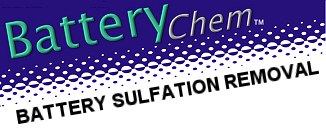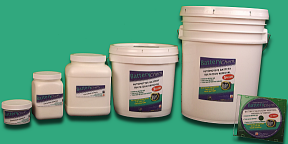


|
|

|
| Tune up your BATTERY · | Protect your BATTERY from Sulfation · Extend your BATTERY LIFE |
| - | |||||
| BATTERY LONGEVITY TIPS | FAQ | PRESS RELEASES | FORKLIFTS | TESTIMONIALS | Walt Barrett's Index of Blogs |
| BUY BATTERY CHEM™ | TOOLS | TRAINING VIDEOS | WATER DEIONIZER | FORKLIFT SERVICE PLAN | MARKETING |
| - | |||||
|
||||||||||||||||||||||||
|
BATTERY QUICK-TESTING PROCEDURE 1. Remove the caps and test the voltage of each cell. Follow the procedure shown in the training videos below. Each cell must read 2 volts. 2. If each cell reads 2 volts or more, add deionized water to each cell as needed. Add the deionized water only to the top of the plates and leave room for the Battery Chem™. 3. Add the necessary Battery Chem™ to each cell, recheck the water level, and fully charge the battery.
4. Load test every battery when finished charging. 5. Check the specific gravity of each cell again. Fully charged cells should read between 1250 and 1270. A Fully charged forklift battery can read as high as 1300. |
||||||||||||||||||||||||
|
||||||||||||||||||||||||
|
||||||||||||||||||||||||
| BATTERY LONGEVITY TIPS | FAQ | PRESS RELEASES | FORKLIFTS | TESTIMONIALS | Walt Barrett's Index of Blogs |
| BUY BATTERY CHEM™ | TOOLS | TRAINING VIDEOS | WATER DEIONIZER | FORKLIFT SERVICE PLAN | MARKETING |
|
|